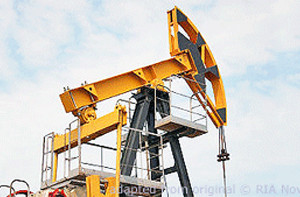U.S. Sanctions Wreak Havoc On Russia’s Oil Industry

(Oilprice.com – Tsvetana Paraskova – August 23, 2018)
[Text with links: oilprice.com/Energy/Energy-General/US-Sanctions-Wreak-Havoc-On-Russias-Oil-Industry.html]
The U.S. sanctions on Russia have affected investment in Russian oil and gas exploration projects, U.S. officials say, while Congress is considering further sanctions on the energy and banking sectors to punish Moscow for the threat it poses to the United States.
At Senate hearings on Tuesday, a Treasury official said that U.S. sanctions have curtailed investment in Russian oil and gas exploration projects necessary to grow Russia’s production. Senators and witnesses who provided testimony discussed the impact of the sanctions, and Senator Mike Crapo (R-Idaho), the Chairman of the United States Senate Committee on Banking, Housing and Urban Affairs that held one of the hearings, said that if Vladimir Putin doesn’t change his behavior, sanctions would “likely remain in place until he’s no longer in power and Crimea is returned.”
Since January 2017, the current U.S. Administration has sanctioned 217 Russian-related individuals and entities for a broad range of activities, Sigal Mandelker, Under Secretary of the Treasury for Terrorism and Financial Intelligence, said on Tuesday in her testimony before the U.S. Senate Committee on Banking, Housing, and Urban Affairs. The Administration has also introduced prohibitions on the provision of goods, services, and technology in support of certain energy projects in Russia.
“Building on sanctions implemented since 2014, the impacts of our Russia-related sanctions are felt far beyond the targeted entities and persons,” Mandelker said, noting that “In the energy sector, our sanctions have limited important investment in exploratory energy projects needed to help grow Russia’s oil and gas production capacity.”
Related: Why Mexico’s Oil Production Could Fall Even Further
Total foreign direct investment into Russia has declined more than 5 percent since 2013, while U.S. investment has plunged by 80 percent since then.
“Russia is taking note of these impacts,” said Mandelker.
“Though Russia’s malign activities continue, we believe its adventurism undoubtedly has been checked by the knowledge that we can bring much more economic pain to bear using our powerful range of authorities – and that we will not hesitate to do so if its conduct does not demonstrably and significantly change,” the Treasury under secretary noted.
Before the testimonies started, Senator Crapo said that “Congress itself is positioned to do more. There are bills in this committee and in the foreign relations committee which seek to escalate economic pain throughout Russia’s banking and energy sectors and sovereign debt markets.”
According to Russia-based analysts who have spoken to Reuters, the ‘bill from hell’ of hard-hitting sanctions against Russia that U.S. Senators introduced earlier this month is unlikely to have a wide-ranging impact on Russia’s oil industry, because Russian firms now rely almost entirely on domestic and Chinese banks for funding, and have lessened their dependence on Western drilling technology.
However, it was Russia’s own natural resources ministry that admitted last week that the sanctions had hampered natural gas project developments in the country. In a report about Russia’s oil and gas resources and their development for the period 2016-2017, the ministry said that sanctions against Russian oil and gas companies that limit the flow of foreign investment, new technologies, and equipment for the sector complicate the development of new projects in Russia, especially in offshore areas and in hard-to-extract resources. In the period 2016-2017, not a single significant gas project was launched, while gas firms focused instead on working at already operational projects, the Russian ministry said in its report.
Gas production at firms Novatek and Lukoil dropped in 2016 compared to 2015, due to the sanctions against those companies, the report said.
Meanwhile, the U.S. Treasury imposed sanctions on Tuesday on Russia-based shipping companies Primorye Maritime Logistics and Gudzon Shipping, as well as on six vessels and on persons involved in the ship-to-ship transfer of refined petroleum products with North Korea-flagged vessels, an activity expressly prohibited by the UN Security Council (UNSC). In a separate action on Tuesday, the Treasury also designated Russian individuals and entities for trying to circumvent U.S. sanctions.
Still, many U.S. lawmakers want tougher sanctions on Russia, including on its energy and sovereign debt, saying that existing sanctions have not brought Russian economy “to its knees.”
[featured image is file photo]

Doesn’t imposing sanctions to remove an elected president from office constitute interfering in a sovereign country? The Russian people elected Putin, yet the US is using sanctions to remove him — against the will of the Russian people. What kind of “democracy” is that?